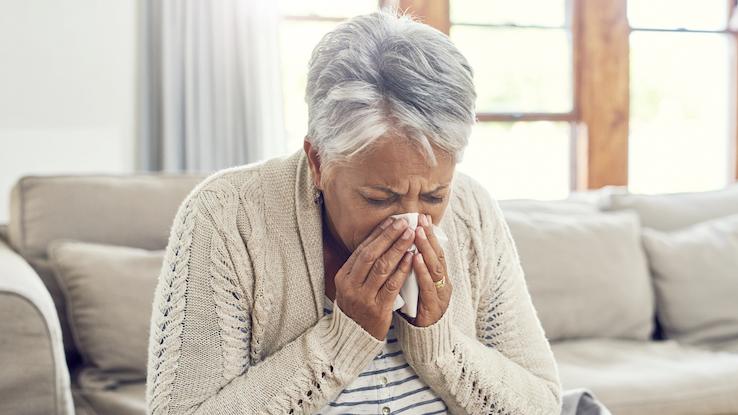
Did your parents or teachers ever tell you to come inside before you “catch cold”? It’s easy to see why people think cold weather can make you sick — after all, many illnesses like colds and flu are more common in the winter months.
But luckily, you can’t catch a cold from cold weather itself. Read on to learn the truth behind some more common winter health myths, and get tips to stay healthy when it’s cold outside.
Sorry, But Taking Lots of Vitamin C Won’t Prevent a Cold

Everyone needs vitamin C to be healthy — it’s essential for everything from wound healing to bone health. Most people get all the vitamin C they need from the foods they eat. And studies show that taking vitamin C supplements won’t prevent the common cold. So unless your doctor says you have a vitamin C deficiency, you can skip the supplements. Instead, just include some citrus fruits in your diet for a healthy dose of this vitamin.
And if you want to prevent seasonal colds, the best method is to wash your hands regularly and stay away from people who are sick.
Nope — You Don’t Lose Most of Your Body Heat Through Your Head

Another common myth you may have heard is that you lose most of your body heat through your head. Parents often say this to get kids to keep their hats or hoods on. It’s true that you can lose heat through your head, but it’s only a small percentage of your overall body heat. The truth is that you’ll lose heat through any part of your body that’s uncovered.
So by all means, wear your hat when it’s chilly out — but don’t forget your coat, boots and mittens, too!
Don’t Worry, You Can’t Get the Flu from a Flu Shot

Flu shots don’t contain the live flu virus — so there’s no way that getting a shot can give you the flu. In fact, getting a flu shot is the very best way to protect yourself from getting the flu.
Experts say that everyone ages six months and older needs a flu shot every year. It’s best to get it by the end of October, before flu season begins. But if you can’t get your shot by then, it’s not too late! Flu season can last until May, so getting your shot later in the fall or winter can still protect you. Just keep in mind that it takes two weeks for the shot to take full effect.
Going Out with Wet Hair May Make You Chilly — But It Won’t Make You Sick

Wet hair and winter don’t make a good pair. If it’s chilly enough, your tresses might even freeze solid! Wet hair will definitely make you feel colder, especially if it’s windy. But feeling cold won’t make you sick all on its own. So if you’re in a rush and don’t have time to blow dry, you’re not risking your health. But you’ll certainly feel a lot warmer with a dry head of hair.
All Myths Aside, You May Get Sick More Often in Cold Weather

Cold temperatures alone can’t cause illnesses like colds and flu — only viruses can do that. But we tend to spend more time indoors in the cold weather, and cold and flu viruses spread more easily indoors. That’s one reason that cold and flu season peaks in the fall and winter.
Cold weather and indoor heating also means dryer air — and that can dry out the lining of your nose, throat and lungs and make it easier for viruses to get in. Cold, dry air can also cause symptoms on its own, like sore throat and asthma symptoms.
So while cold air itself can’t infect you with a disease, it can make you feel lousy. And your risk for getting seasonal illnesses like cold and flu gets higher when the temperatures get lower.
How to Stay Healthy in Cold and Flu Season

If you want to avoid getting sick this fall and winter, don’t rely on vitamin C pills and furry hats. Instead, follow these evidence-based tips to protect yourself from viruses:
- Wash your hands often with soap and water. Regular hand washing is one of the best ways to stop the spread of viruses.
- Avoid spending time with people who are sick. Cold and flu viruses spread easily from person to person.
- If you smoke, make a plan to quit. Smoking can weaken your immune system and make you more likely to get respiratory viruses.
- Get enough sleep. A healthy sleep schedule supports your immune system and makes it easier to fight off viruses. Aim for at least seven hours a night.
- Eat healthy and be active. A healthy diet and regular exercise are also key to a healthy immune system. Try walking more and adding a few more fruits and veggies to your plate.
Getting the occasional cold or other winter illness may be unavoidable. But if you take steps to protect yourself from viruses, you’ll have a better chance of staying safe and healthy all winter long.
Resource Links:
- “Vitamin C for Preventing and Treating the Common Cold” via Cochrane Database of Systematic Reviews
- “Preventing Seasonal Maladies” via Harvard Health
- “Preventing and treating colds: The Evidence and the Anecdotes” via Harvard Health
- “Cold weather increases respiratory symptoms and functional disability especially among patients with asthma and allergic rhinitis” via Scientific Reports
- “The impact of cold on the respiratory tract and its consequences to respiratory health” via Clinical and Translational Allergy





